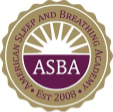New Study Shows Oral Appliance Reduces Blood Pressure As Effectively As CPAP
By Ira L. Shapira, D.D.S., F.I.C.C.M.O.
Patients prefer oral appliances to CPAP when they are given a choice. There have been many studies showing that oral appliances successfully treat sleep apnea and snoring. A landmark article published in Sleep, Vol. 27, No. 5, 2005, written by Doctors Gotsopoulos, Kelly and Cistulli, revealed that appliance therapy reduced elevated blood pressure similar to results achieve with CPAP. These results were found to be clinically significant and according to the authors, could represent a twenty percent (20%) reduction in the risk of stroke if maintained for two to three years.
The blood pressure reduction found with the oral appliance was apparent in the early morning, which is when there is significant risk for myocardial infarction and stroke. Compliance with appliance treatment was high with patients reporting 6.8 hours of wear on average. This is much higher than patient compliance reported with CPAP.
Why is it that the "Gold Standard" of treatment for sleep apnea is CPAP when patients prefer the oral appliance are more compliant, and have similar results with the appliance? The first reason is that studies on oral appliances are based on patients reporting how often and how long they wear their appliances. Newer studies with CPAP are more objective. It is interesting to note that when asked to compare comfort of CPAP vs. oral appliance, most patients preferred appliance and reported higher usage. Patient compliance is the main problem with CPAP.
CPAP is effective for all patients for controlling sleep apnea. Oral appliances are not indicated for all patients, particularly not for the morbidly obese and for those who do not have enough teeth to support the appliance. However, many patients who use CPAP report problems with Excessive Daytime Sleepiness (EDS), as well as other problems even when sleep apnea is controlled.
CPAP is titrated at the sleep lab to ideal pressure. Most oral appliances cannot be lab titrated. This author refers all sleep patients for titration of oral appliances, as this is the best way to determine ideal jaw position to control sleep apnea. At this time, there is only one appliance that can be titrated while the patient is sleeping. That appliance is the Thornton Adjustable Positioner (TAP® Appliance).
I would strongly advise that sleep apnea patients who do not routinely use CPAP all night return to their sleep centers to solve problems with CPAP or consider trying an oral appliance. While CPAP may be the "Gold Standard" of treatment, medical studies report only twenty-three to forty-five percent (23 - 45%) of patients use it successfully.
CPAP is never successful when it is not worn and only partially successful if only worn part time. For the sake of your health, please see your sleep center for help with CPAP problems or find a dentist credentialed by The Academy of Dental Sleep Medicine, www.dentalsleepmed.org, for treatment with oral appliance.






